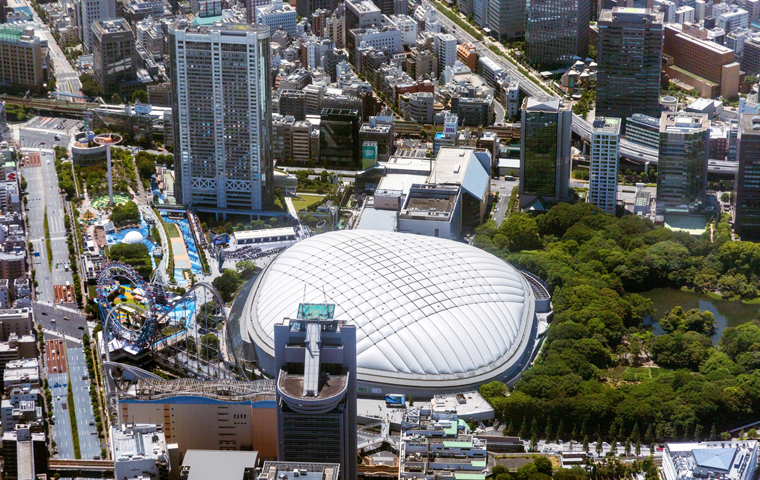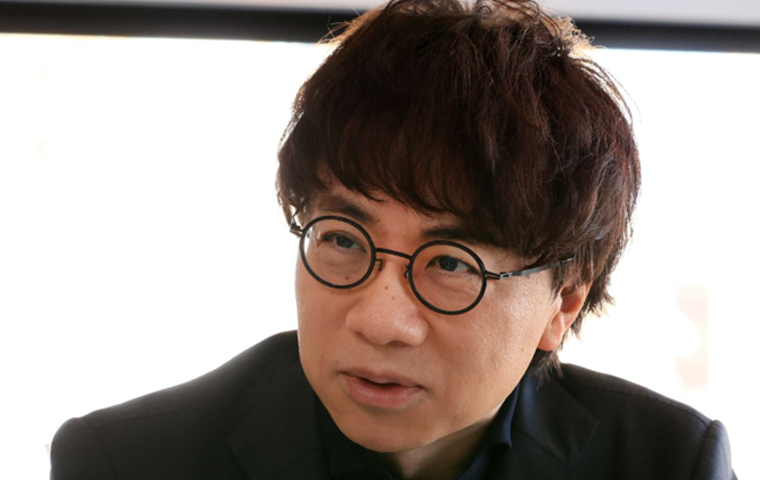The Sun Sets — Shigeo Nagashima, “Mr. Baseball,” the Soul of Japan, Passes Away
Related Articles
The Light That Never Fades: The Legend of “Mister” Loved by a Nation
On the early morning of June 3, 2025, news spread across Japan that brought with it a shock and a deep sense of loss.
Shigeo Nagashima, known affectionately as “Mr. Baseball” and “Mr. Giants,” passed away at the age of 89 due to pneumonia.
He was more than a baseball player—he was a national symbol of postwar Japan, an embodiment of hope, vitality, and the dreams of a generation that rose from the ashes of war. His passing marked the end of an era, not just in sports, but in the hearts of millions who had lived their youth alongside him.
The title “Mr. Baseball” was not a mere nickname; it was a national honor, a reflection of the profound respect and affection he inspired.
Since joining the Yomiuri Giants in 1958, Nagashima dominated Japanese baseball for 17 seasons, becoming the face of the sport itself.
With his clutch hitting, dazzling defense, and unmatched charisma, he brought excitement and joy to every stadium he graced.
Every swing, every play radiated pure emotion—not a calculated technique, but a living expression of will and passion.
For fans, his moments of triumph and failure mirrored their own lives. They laughed, cried, and believed alongside him.
His rise coincided perfectly with Japan’s postwar rebirth.
When Nagashima entered the professional ranks in 1958, Japan was transforming from a defeated nation into an economic powerhouse.
Television had just begun to enter households, and his games became nightly rituals for a nation rebuilding its confidence.
The story of an unknown youth from Sakura High School in Chiba, who blossomed at Rikkyo University and then ascended to become a national hero, perfectly captured Japan’s belief in progress—that “tomorrow will be better than today.”
Nagashima was, quite literally, a sun shining over Japan’s era of growth and optimism.
His popularity was rooted in the collective experience he created.
Baseball was not just a sport to watch—it was a shared moment uniting the country. Families gathered around televisions, crowds filled the streets to watch outdoor broadcasts, cheering his home runs and sighing at his strikeouts.
When he retired, it was called a “national event”; for many, it felt like losing a piece of their youth and identity.
In this way, Nagashima became more than an athlete—he was a cultural icon, a part of Japan’s postwar identity.
His passing evokes not only grief but a deep nostalgia—a farewell to the shining age that shaped modern Japan.
The Flash That Lit the Diamond: The Imperial Game and the V9 Dynasty

The photo shows the current Tokyo Dome.
Nagashima’s legend began with drama.
In his 1958 debut game, the highly anticipated rookie took the field as the Giants’ third baseman and number-three hitter—only to strike out four times against ace pitcher Masaichi Kaneda of the Kokutetsu Swallows.
He managed just one foul ball in four at-bats—a humiliating start for a man destined for greatness.
But that failure became the spark for an extraordinary career.
By season’s end, he had rebounded spectacularly, posting a .305 batting average, 29 home runs, and 92 RBIs, earning the Rookie of the Year award and leading the league in both home runs and RBIs.
Had it not been for a famously missed base that nullified a home run, he might have achieved an unprecedented rookie “triple three.”
This transformation from failure to triumph became a defining theme of his life.
Then came June 25, 1959, the day that would make his name immortal.
The stage was Korakuen Stadium, the opponents: the rival Hanshin Tigers.
It was the first-ever “Imperial Game” (Tenran Jiai)—attended by the Emperor and Empress of Japan.
In an era when the Emperor’s public presence still carried immense symbolic weight, this was a landmark event: baseball, once a pastime, was now graced with national legitimacy.
With the score tied 4–4 in the bottom of the ninth and the imperial couple scheduled to depart at 9:15 p.m., tension filled the air.
At 9:12 p.m., Nagashima stepped up as the leadoff hitter. Facing a high inside fastball from pitcher Minoru Murayama, he swung with full force—
and the ball soared into the night sky, curving down just inside the left-field foul pole for a dramatic walk-off home run.
As he rounded third base, he looked up to see the Emperor leaning forward, watching intently.
It was, as many would later say, a moment scripted by fate itself.
That swing was more than a home run—it was a merging of national story and personal destiny.
In one instant, Nagashima transformed baseball into a national mythology, elevating the sport into Japan’s cultural consciousness.
From that moment, he ceased to be merely a player; he became a chosen hero, a living legend embodying postwar hope.
The game was also the birth of another legend: the first “ON Arch”, as both Nagashima and Sadaharu Oh, the rookie who would later become the “Home Run King of the World,” hit home runs in the same match.
Together, they formed the “ON duo,” leading the Yomiuri Giants through an unprecedented nine consecutive Japan Series championships (V9, 1965–1973).
Nagashima won six batting titles, two home run crowns, five RBI titles, five MVP awards, and was named to the Best Nine an astonishing 17 times.
Yet fans remember not the numbers, but the moments of brilliance—the plays that etched themselves into Japan’s collective memory.
His career was a cascade of lightning flashes—a series of unforgettable, luminous moments.
“Eternal” and “Make Drama”: Words That Moved a Nation
Nagashima’s influence transcended the diamond.
As both player and manager, he became a master storyteller, using words as powerfully as his bat.
Two phrases in particular define his legacy—each spoken at a moment that captured Japan’s emotional core.
The first came at his retirement ceremony on October 14, 1974.
The Giants’ nine-year championship streak had ended, and Nagashima, at 38, was ready to step down.
Standing at the microphone in Korakuen Stadium, tears in his eyes, he addressed the crowd:
“Today, I retire. But our Yomiuri Giants will be eternal!”
That single phrase—“eternal” (eien ni fumetsu)—transformed grief into hope.
It turned a farewell into a promise.
Rather than marking the end of an era, Nagashima declared the immortality of the team and its spirit.
His words echoed across the nation, turning a retirement speech into a ritual of renewal.
From that day on, he was not just a player—he became the eternal embodiment of the Giants themselves.
The second phrase came in 1996, when Nagashima, now manager, led the Giants during Japan’s prolonged economic stagnation—the so-called “Lost Decade.”
His team trailed by 11.5 games in July, seemingly out of contention.
But Nagashima, ever the dreamer, declared a new slogan in his signature mix of Japanese and English:
“Make Drama!” (Meiku Dorama)
It was more than a catchphrase—it was a call to arms, an invitation to believe in miracles.
The team responded spectacularly, storming back to seize first place in August and ultimately winning the Central League championship in a dramatic comeback on October 6.
“Make Drama” became the buzzword of the year, symbolizing the unyielding Japanese spirit of perseverance.
Through these moments, Nagashima proved that his genius lay not only in athletic prowess but in his instinct for storytelling—his ability to sense the pulse of the times, to transform struggle into myth, and to give his nation language for hope.
He was not just part of history—he wrote it, both on the field and in the hearts of the people.
The Crown of Culture: From Sports Hero to National Treasure

Even after leaving the field—and even after illness struck—Nagashima’s light never dimmed.
If anything, his later years deepened his legend, proving that he was more than an athlete: he was a cultural figure woven into Japan’s very identity.
In 2004, he suffered a stroke that left his right side paralyzed.
The man who once danced across the diamond was suddenly confined by his own body.
But once again, he defied despair.
With relentless determination, he undertook grueling rehabilitation, his courage inspiring countless others facing illness or aging.
He embodied not just victory, but dignity in adversity—a hero now showing the power of resilience.
In recognition of his lifelong contributions, Japan bestowed its highest honors upon him.
In 2013, he received the People’s Honor Award, alongside his protégé and MLB star Hideki Matsui.
At the Tokyo Dome ceremony, the symbolic moment came when Matsui threw a pitch, and Nagashima, using one hand, made a gentle swing—an image of baseball’s spirit passed from master to pupil, bringing tears to a nation.
Then, in 2021, he received the Order of Culture, one of Japan’s most prestigious national decorations—the first professional baseball player ever so honored.
Unlike awards for athletic excellence, the Order of Culture recognized that Nagashima’s existence itself had become a part of Japan’s cultural fabric.
His plays, his words, his presence—all had enriched Japan’s postwar cultural landscape, transcending the boundaries of sport.
From a star athlete at Rikkyo University to a symbol of Japan’s postwar rebirth;
from the hero of the Imperial Game to the charismatic manager who inspired “Make Drama”;
from the brilliant player to the indomitable spirit honored as a national treasure—
Shigeo Nagashima’s life mirrored the story of modern Japan itself.
Though his body has returned to the earth, his light remains.
The brilliance he left on the diamond, the hope he stirred in the hearts of millions, and the stories he told through his courage will endure—
eternal and unextinguished, just as he once proclaimed of his beloved Giants.
His legend will live on—forever part of Japan’s soul.



